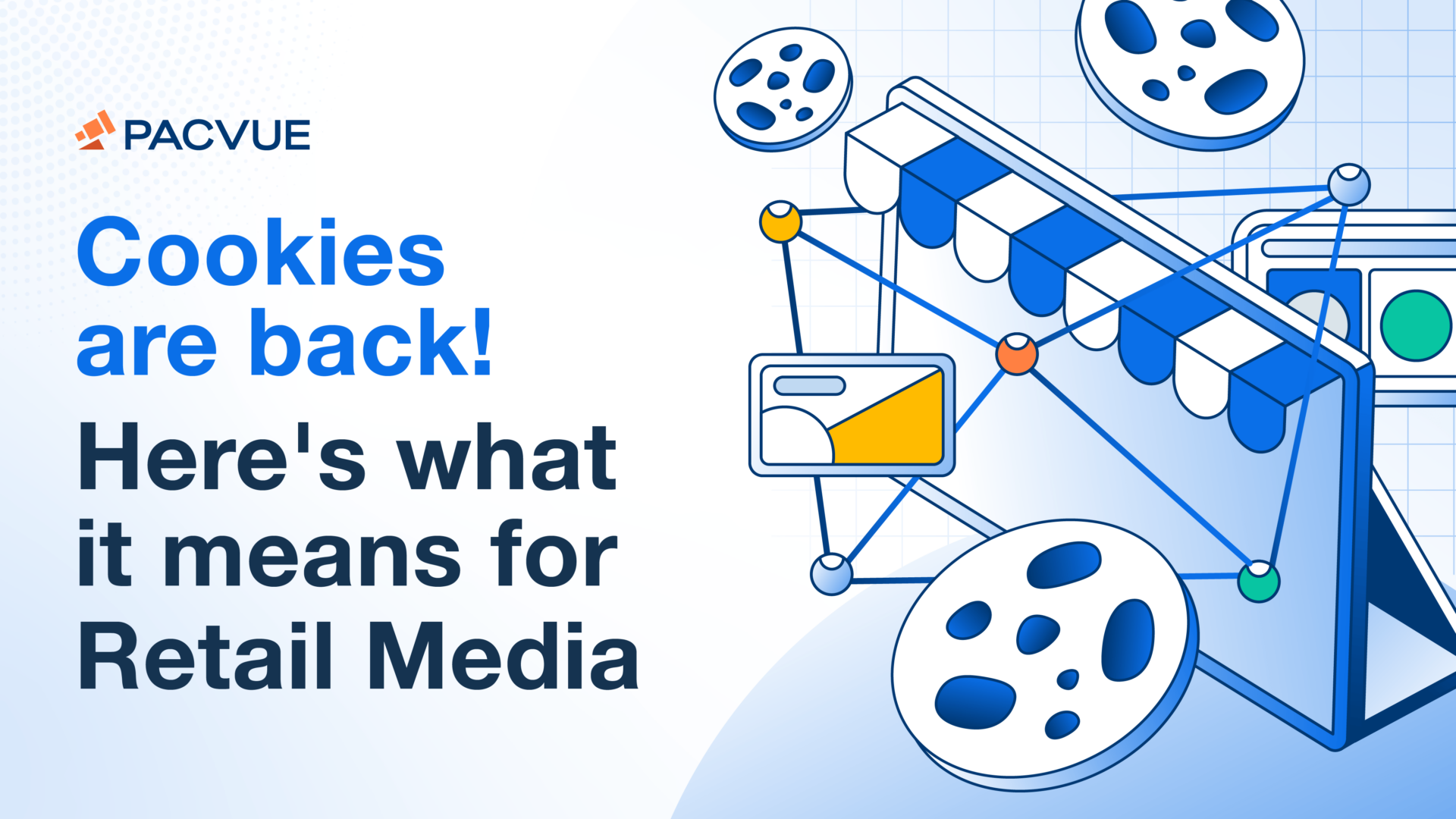Third-party cookies aren’t going anywhere. Or at least anytime soon, as Google reverted its decision to deprecate third-party cookies. In April, Google shared that it would push out the deprecation of cookies on Chrome until 2025, but in a statement on Tuesday, it confirmed that it would be backtracking (excuse the pun) on its decision.
While Google is going to continue to invest in their walled garden solution, the impact of removing cookies was too great to remove them from Chrome completely. Anthony Chavez, Google’s VP of Privacy Sandbox, which is product that aimed to replace cookies, shared this in his statement:
“At the same time, we recognize this transition requires significant work by many participants and will have an impact on publishers, advertisers, and everyone involved in online advertising.
In light of this, we are proposing an updated approach that elevates user choice. Instead of deprecating third-party cookies, we would introduce a new experience in Chrome that lets people make an informed choice that applies across their web browsing, and they’d be able to adjust that choice at any time.”
While advertisers are generally happy about this decision, some may wonder what this means for future investment in Retail Media Networks, which could admittedly benefit from the deprecation of third-party cookies and largely leverage first-party data. Here’s our take on what Google’s Cookie Policy change means for Retail Media Networks:
Impact on Walled Gardens: Continued Growth of Walled Gardens Despite the “Return” of the Third-Party Cookie
Many Retail Media Networks (RMN) developed walled-garden solutions over the last 18 months, in some part potentially influenced by the end of the third-party cookie. Despite Google’s change in direction, user data in walled-garden solutions like Amazon Marketing Cloud remains valuable as it is largely collected at the time of conversion, maintaining its value regardless of external tracking practices. While this news may encourage user retargeting and slightly reduce the value of non-endemic ads, Amazon’s DSP (Demand-Side Platform) may face more impact than endemic Sponsored Ads on Amazon.
Impact on User Privacy
Most RMNs will continue with their expansion of privacy-safe walled gardens and utilize cookie data in combination. Many feel that security concerns around deprecating cookies were overstated and most companies benefit from server-side data transfer.
A ‘walled garden’ is a controlled digital ecosystem in which retailers like Amazon or Walmart can store their first party user data and restrict access and interactions within its ‘walls’. Brands can utilize this walled garden data and combine it with their own first-party or 3rd party data from providers like NielsenIQ in a data clean room. In these secure digital environments, brands can upload, mingle, and analyse multiple sources of data, including first-party cookie data. Clean rooms are growing in popularity as it allows brands to gather insights without exposing the underlying data to the retailer or anyone else. For example, two parties collaborating on a joint marketing program can implement, monitor, and analyze their campaign without seeing each other’s data.
That said, Google still has major hurdles to overcome with regulators like the U.K.’s Competition and Markets Authority, given that their proposed cookie consent solution does not comply with current regulations around informed specific consent under GDPR according to Ruben Schreurs, Chief Strategy Officer Ebiquity.
Impact on Measurement
This move is generally a positive one for brands and agencies when considering media attribution and measurement of incremental sales. While some might view the prevail of third-party cookies as a knock to closed Retail Media Networks, it should be known that Google’s outlined solution is likely to see a significant drop of user opt-ins, similar to what happened when Apple implemented their App Tracking Transparency in 2021. Even without a change in Chrome’s cookie opt-in features, users are not a fan of cookies, according to The Drum’s Data & Privacy Playbook
- 70% of consumers block personal data when browsing online by limiting cookies.
- 18% entirely opt out of cookies daily.
- 40% of users use a Virtual Private Network (VPN).
These numbers paint a stark reality of user’s disdain for third-party cookies. Other browsers, including Firefox and Safari, have already removed cookie-tracking.
Given the current market sentiment, it’s safe to assume that Walled Gardens are here to stay and will continue to deliver value to brands and agencies by providing privacy-safe solutions for retargeting.
Pacvue’s SVP of Product, Sunava Dutta shared his view on Google Decision:
“The war against cookies has been waged for over two decades, with one of the earlier attempts starting with HTML5 local storage (I was one of the authors of the technology!). The reality is the security and privacy risks of cookies are well understood, and alternate technologies have their own trade-offs. Privacy Sandbox, for example, aims to replace third-party cookies with aggregated data while UID 2.0 uses encrypted identifiers to enhance privacy.
At Pacvue, we are prepared for either future. We can help brands take advantage of powerful data resources like Amazon Marketing Cloud and understand customer purchasing patterns and browsing activities. With large DSP Networks, we bring precise targeting. Additionally, we’ve helped countless brands shift programmatic budgets to Retail Media Networks.”
Make sure to follow Sunava on LinkedIn for more commerce insights as they happen.
Given the back-and-forth on this topic, it’s not out of the realm of possibility that Google may ultimately change its mind again. Should this happen, Pacvue is well prepared to help support our partners with the transition. Check out our blog on the Importance of Retail Media Networks in a cookieless future.













